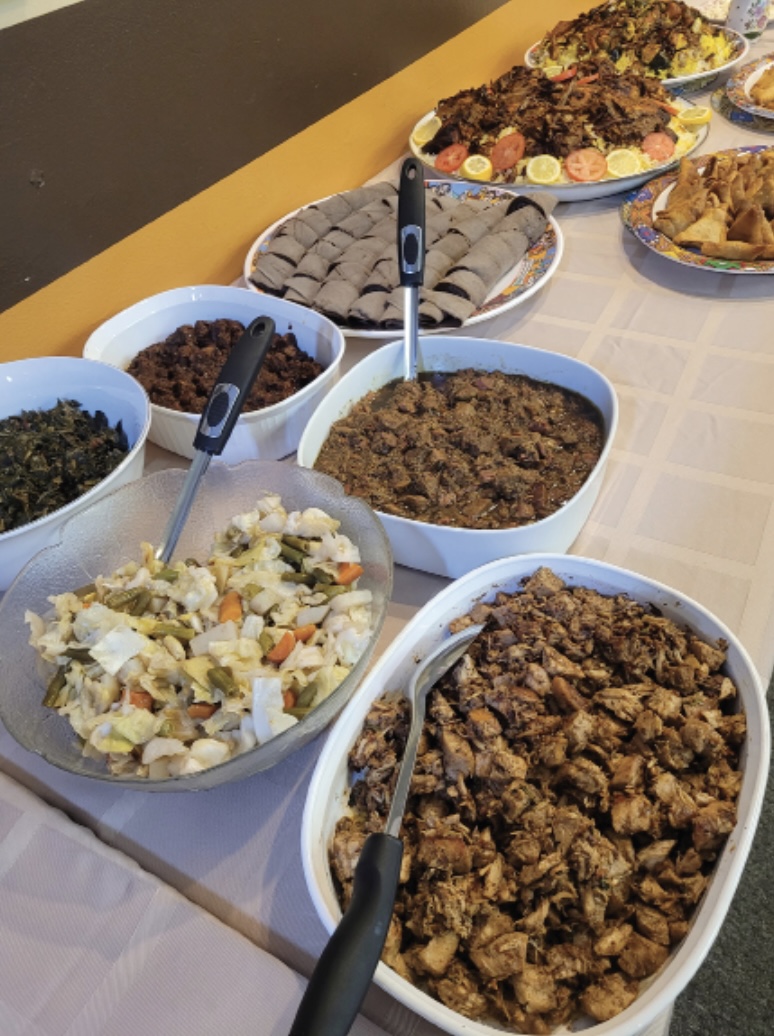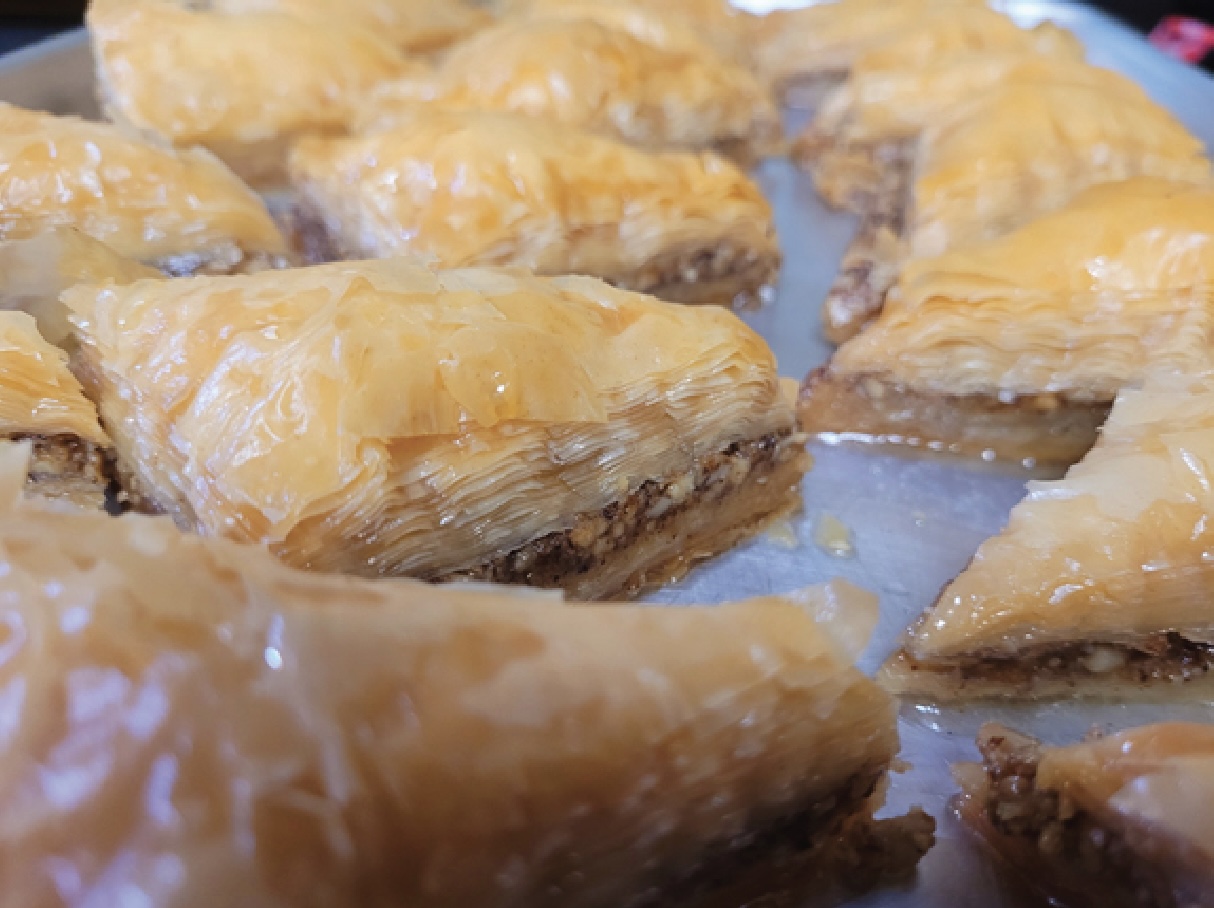For owner Maya Hetman, owner of Uchenna Ethiopian Restaurant, life is infused with significance. From the name of her village, the meals she shares, to the spices with which she cooks.
“Everything, including our names, has meaning,” she said.
She grew up in northeastern Ethiopia in Garamuleta, a small village named for the tallest mountain in the region.
“‘Gara’ means ‘the mountain,’ ‘Muleta’ means ‘the one you can see,’” she explained.
In the shadow of that visible mountain, Hetman grew up among Orthodox Christians, Jews and Muslims who often intermarried, shared holidays and meals. A member of the Oromo tribe, the largest in Ethiopia, she spoke three local dialects, while also learning French, English, Italian, Arabic and Spanish.
“In my family, we grew up watching my grandma, my mother roasted and put the spices out in the sun, grinding them on the stone. … We always gathered. We just grew up with this smell everywhere … and eating together. My mother would always say to anybody passing ‘Hello, come on, come on,’ and everybody came to eat.”
Sitting together, her family members would feed one another and ate with their hands. Meals were more than nutritional sustenance; they were intimate gatherings.
Men and woman shared duties together including cleaning and cooking. Growing up during a time of war, everyone was expected to know how to do everything.
We always gathered. – Maya Hetman
Everybody, young and old, had a role, and everyone contributed. No matter how educated one was, everyone needed to know how to iron the clothes or cook a meal; it was always important to learn how to work with one’s hands.

She serves the staple bread of her country, made with teff, a gluten-free, nutrient-dense fine grain derived from a native grass that thrives in harsh climates including high heat and sunlight. In some ways, it’s an homage to her own journey to the United States.
During her country’s civil war that began in the mid-1970s, Hetman and her family fled in the mid-1980s through the French territories before settling in Marseilles, France. She then headed to California, where she and her husband met; they moved to Colorado Springs nearly 16 years ago.
A friend encouraged her to open a restaurant in Old Colorado City.
“Whatever we eat is what we serve to the people,” she decided.
Maya opened her restaurant with only five small tables, and it happened to be Territory Days. A friend who worked at the Rocky Mountain Chocolate Factory came to her.
“Oh, there is a competition. You have to come into the competition,” she told Hetman.
“What is the competition?”
“You have to cook chile con carne.”
“What is chile con carne? I don’t know what that is.”
“It’s ground meat with the spices and things like that.”
Hetman, having never cooked it before, made her own version using her native spices. She won. News spread and the rest was history.
To this day, she still flies in spices from her home country to use in the restaurant.
“When it is made with love and with the real ingredients, then you present your land, your country because you do the traditional things like your grandparents did or your mother did. … It is not commercial … you are transferring all what you have received, including the love to the people.”
When she came to America, Hetman had to adapt to a foreign land, but brought her culture with her, including a generosity without expectation of payback. Her mother gave money and sewing lessons to women in their village. The emphasis was not on paying it back, but paying it forward, a lesson Hetman carries with her to this day.
And the meaning of “Uchenna”?
“The will of God.”
IF YOU GO
Uchenna, 2501 W. Colorado Ave., No. 105 (Old Town Plaza), is open for lunch 11:30 a.m.-2 p.m. Tuesdays-Fridays and noon-2 p.m. weekends. Dinner is served 5-8 p.m. Closed Mondays. Reservations required: 719-634-5070. Information: uchennaalive.com.

